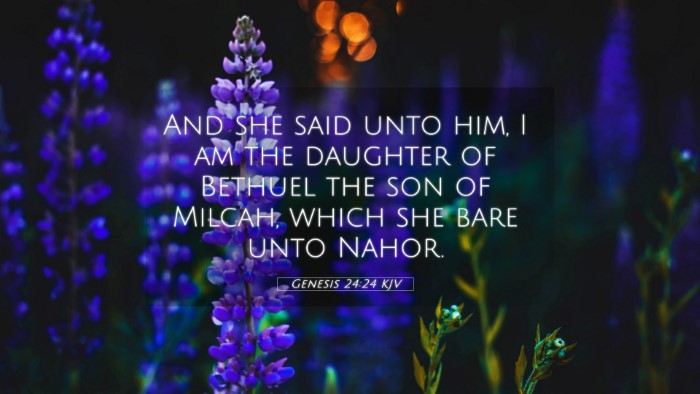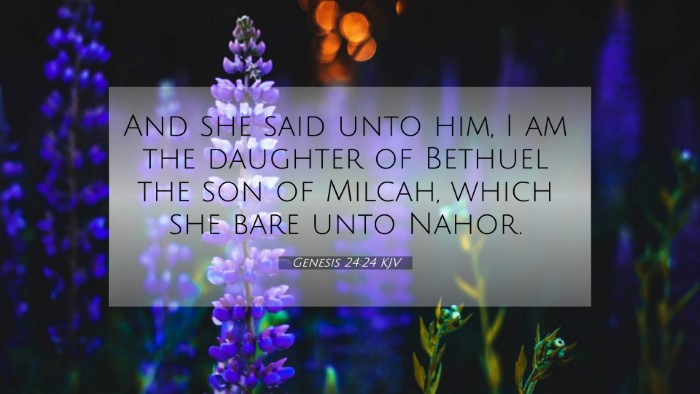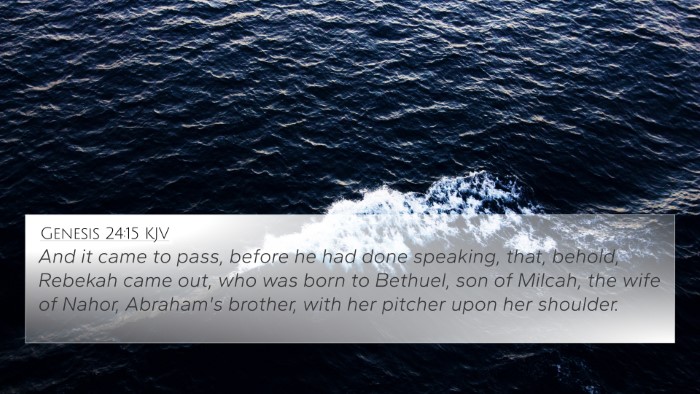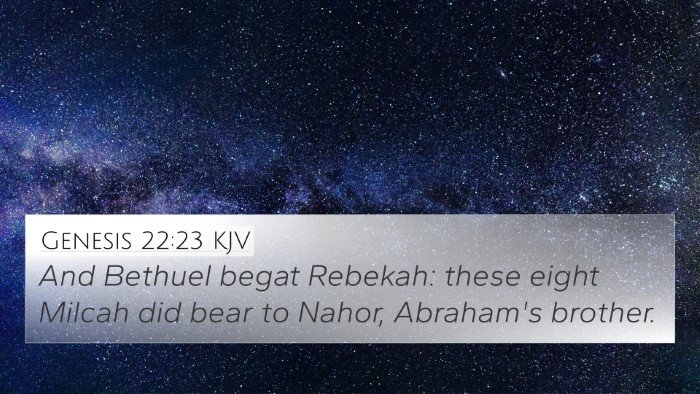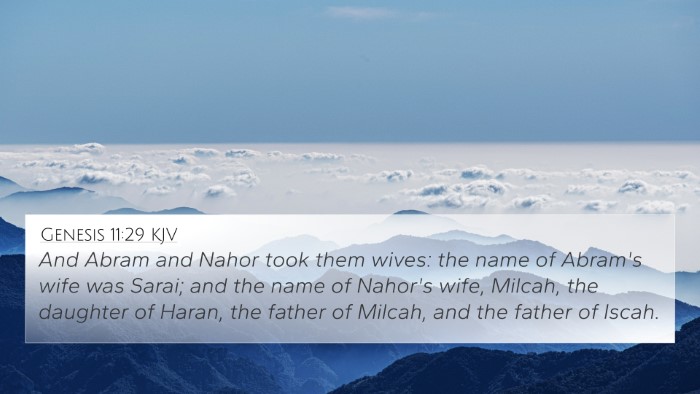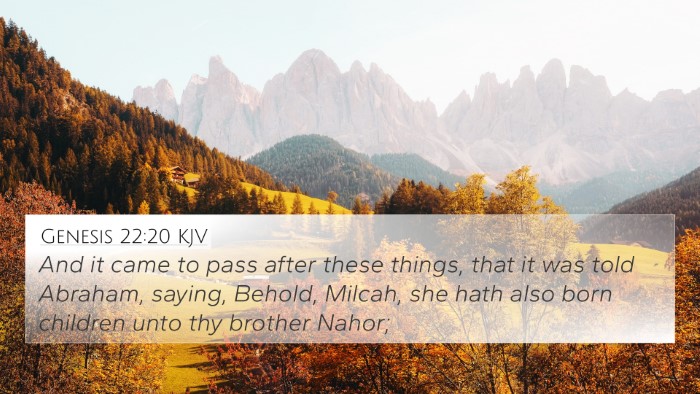Understanding Genesis 24:24
Genesis 24:24 states:
"And she said unto him, I am the daughter of Bethuel the son of Milcah, which she bare unto Nahor." (Genesis 24:24, KJV)
This verse contains significant theological and narrative elements that capture the unfolding plan of God through the lineage of Abraham and Rebekah's connection to the larger biblical story. Below, we will explore the meaning, interpretations, and cross-references related to this verse.
Verse Analysis
In Genesis 24:24, Rebekah identifies herself as the daughter of Bethuel, who in turn is the son of Milcah. This connection not only highlights her family lineage but also brings attention to the covenant promise God made to Abraham regarding the blessed lineage that would come through him.
The Significance of Family Lineage
Family lineage is a recurring theme in the Bible, emphasizing God's selective plan throughout generations. The mention of Rebekah’s lineage is crucial as it connects her to the Abrahamic covenant, affirming her role in the divine plan.
Insights from Public Domain Commentaries
- Matthew Henry: Henry emphasizes the importance of knowing one’s lineage. The mention of Bethuel and Nahor is not incidental; it serves to show how God works through families and heritage. It aligns with God's promise and the unfolding story of redemption.
- Albert Barnes: Barnes highlights that the identification of Rebekah establishes her suitability as a wife for Isaac. Links are drawn through her descendants' significance to the history of Israel, thus revealing God's providence in the selection of a partner for Isaac.
- Adam Clarke: Clarke mentions that Rebekah’s statement serves as a confirmation of God’s leading. Clarke’s commentary points to the narrative framework, illustrating how God orchestrates events in human relationships to fulfill His divine purposes.
Bible Cross-References
To further understand the implications of Genesis 24:24, we can look at several cross-references that illuminate this verse’s position within the biblical narrative:
- Genesis 11:26-32: This passage gives the background of Abraham’s family, setting the stage for Rebekah’s ancestry.
- Genesis 22:20-24: These verses detail the lineage of Nahor, further establishing the familial connections to Rebekah.
- Genesis 24:1-8: These verses introduce the main narrative of Abraham's servant seeking a wife for Isaac, underscoring the significance of Rebekah’s identity.
- Romans 9:10-12: This New Testament passage reflects on God’s purpose in choosing descendants, paralleling the call of Abraham's family.
- Hebrews 7:14: This verse connects to the priesthood of Christ through Abraham, showing the fulfillment of God's promises through the lineage.
- 1 Peter 1:10-12: This outlines the prophetic nature of the Old Testament events, incorporating Rebekah’s role as integral to the unfolding of God's plan.
- Matthew 1:2-16: The genealogy of Jesus ultimately traces back to Abraham, whereby Rebekah's lineage ties into the greater story of salvation.
- Luke 3:34: This genealogy further confirms the importance of Abraham's descendants leading to the Messiah.
- Exodus 3:6: The God of Abraham, Isaac, and Jacob serves as a reminder of the covenant rooted in family heritage.
- Galatians 3:29: This verse illustrates believers being heirs to the promises made to Abraham, embodying the significance of ancestry through faith.
Thematic Connections
Genesis 24:24 presents thematic connections to the broader narrative. Here are key themes observed:
- Covenant Identity: The emphasis on lineage serves the purpose of highlighting God's covenant with Abraham and its implications for future generations.
- Divine Providence: The choice of Rebekah as a spouse for Isaac is a testimony to God's sovereign guidance.
- Family as a Covenant Community: The interconnectedness of families highlights the importance of familial bonds in fulfilling God's promise.
Conclusion
The verse Genesis 24:24 encapsulates a moment of revelation rooted in family heritage and divine guidance. Understanding this verse in its biblical context allows for deeper insight into the genealogical connections that matter in God's unfolding story. The connections to other Scripture enrich our analysis, presenting tools for cross-referencing, and facilitating a comparative study of themes. Through these insights, one can appreciate the art of scriptural cross-referencing that seeks to establish a comprehensive understanding of biblical themes.
Additional Resources for Cross-Referencing
Utilizing tools for Bible cross-referencing can significantly enhance your understanding of specific verses:
- Bible Concordance: A useful tool to find relevant verses based on keywords.
- Bible Cross-Reference Guide: Guides that provide cross-references for better understanding.
- Cross-Reference Bible Study: A method to connect and analyze verses in detail.

